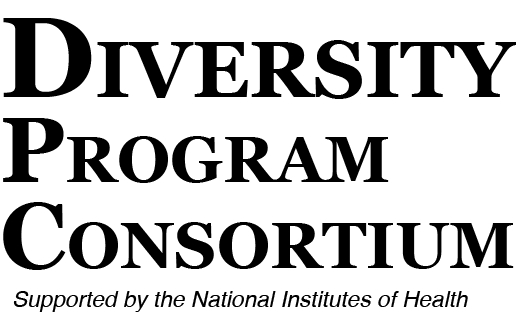



The Arc of Success depicts the career path of an individual pursuing a career in biomedical/behavior research. The DPC developed and mapped these elements onto the Hallmarks of Success. The Hallmarks are used to guide the Consortium-Wide Evaluation (CWEP) spanning student, faculty/mentor and institutional impacts. (Return to CEC Products page)
Student/Trainee Hallmarks |
||||
|---|---|---|---|---|
|
Preamble Hallmarks assume there is baseline data on program participants and a similar group not in the program. Progress towards hallmarks means that those in the program do better over time than comparisons. The hallmarks are goals to achieve or move towards over the course of the program. If the hallmark is already at a high level, then maintenance is the goal. |
||||
| Hallmark ID | Student/Trainee Hallmarks (Beginning - Yr. 6-10) | |||
| STU-1 | High academic self-efficacy | |||
| STU-2 | High self-efficacy as a researcher | |||
| STU-3 | High science identity | |||
| STU-4 | Satisfaction with quality of mentorship | |||
| STU-5 | Perceived sense of belonging within the university | |||
| STU-6 | Perceived sense of belonging within the research community | |||
| STU-7 | Intent to pursue a career in biomedical research | |||
| STU-8 | Entry into an undergraduate biomedical degree program | |||
| STU-9 | Persistence in biomedical degree or other formal research training program | |||
| STU-10 | Frequent receipt of mentoring to enhance success in the biomedical pathway | |||
| STU-11 | Participation in mentored or supervised biomedical research | |||
| STU-12 | Evidence of competitiveness for transitioning into the next phase in the biomedical career pathway | |||
| STU-13 | Participation in academic or professional organizations related to biomedical disciplines | |||
| STU-14 | Evidence of excelling in biomedical research and scholarship | |||
| STU-15 | Strong academic and professional networks | |||
| STU-16 | Completion of biomedical degree or other formal training program | |||
| STU-17 | Application and acceptance to a subsequent research training program in a biomedical discipline | |||
| STU-18 | Entrance into a subsequent research training program in a biomedical discipline | |||
Faculty Hallmarks |
|||
|---|---|---|---|
|
Preamble Hallmarks assume there is baseline data on program participants and a similar group not in the program. Progress towards hallmarks means that those in the program do better over time than comparisons. The hallmarks are goals to achieve or move towards over the course of the program. If the hallmark is already at a high level, then maintenance is the goal. Note: In all Hallmarks the term "Biomedical" is defined as "Behavioral and biomedical health-related". |
|||
| Hallmark ID | Faculty/Mentor Hallmarks (Beginning - Yr. 6-10) | ||
| FAC-1 | High self-efficacy as an instructor in a biomedical field | ||
| FAC-2 | High self-efficacy as an instructor to a diverse group of biomedical students | ||
| FAC-3 | High self-efficacy as a mentor to biomedical research trainees | ||
| FAC-4 | High self-efficacy as a mentor to a diverse group of biomedical research trainees | ||
| FAC-5 | Frequently mentors students, post-docs, and/or more junior faculty on biomedical related issues | ||
| FAC-6 | High self-efficacy as an independent biomedical researcher | ||
| FAC-7 | High self-efficacy in the ability to secure external funding | ||
| FAC-8 | Engaged in activities to secure research or research training funding | ||
| FAC-9 | Securing research or research training funding | ||
| FAC-10 | Evidence of scholarly productivity | ||
| FAC-11 | Evidence of professional recognition and service | ||
| FAC-12 | Strong academic and professional networks | ||
| FAC-13 | Advancement to next career stage | ||
| FAC-14 | Advancement to leadership positions in biomedical research and research training | ||
| FAC-15 | Evidence of receiving training in areas to foster inclusive research training environments | ||
| FAC-16 | Strong self-efficacy to act as a change agent to enhance diversity in biomedical research and research training environments | ||
| FAC-17 | Uses evidence-based practices in teaching and mentoring | ||
Institutional Hallmarks |
|||
|---|---|---|---|
|
Preamble The hallmarks are goals to achieve or move towards over the course of the program. If the hallmark is already at a high level, then maintenance is the goal. Note: In all Hallmarks the term "Biomedical" is defined as "Behavioral and biomedical health-related". |
|||
| Hallmark ID | Institutional Hallmarks (Beginning - Yr. 6-10) | ||
| INST-1 | Commitment to efforts that create, enhance, and/or maintain diversity and inclusion at all levels of the institution | ||
| INST-2 | Evidence of creating, enhancing, and/or maintaining diverse, inclusive, and culturally appropriate research and research training environments | ||
| INST-3 | Demonstrated institutional commitment to creating, enhancing, and/or maintaining the diversity of the biomedical faculty on campus by recruiting a diverse pool of potential applicants | ||
| INST-4 | Implementation of sustainable institutionally supported intra-institutional activities to achieve positive outcomes related to biomedical research capacity building and faculty development | ||
| INST-5 | Enhanced inter-institutional collaborations to achieve positive outcomes related to biomedical research, research training, and faculty development | ||
| INST-6 | Implementation of sustainable institutionally supported activities to achieve positive outcomes related to biomedical research training | ||
| INST-7 | Enhancing or maintaining the diversity of students, e.g. those from nationally underrepresented groups, who pursue degrees in biomedical fields | ||
| INST-8 | Demonstrated institutional commitment to efforts that sustain the interest of trainees from all backgrounds pursuing degrees in biomedical fields that increase persistence | ||
| INST-9 | Employs evidence-based approaches to establish and attain goals for graduation rates, time-to-degree, and the ability to transition to biomedical graduate and professional degree programs for students from all backgrounds | ||
| INST-10 | Demonstrated institutional commitment to implementing and sustaining mentoring practices that promote the development of research-oriented students from all backgrounds | ||
| INST-11 | Institutional infrastructure to track regular reporting of student demographics and outcomes with respect to biomedical fields | ||